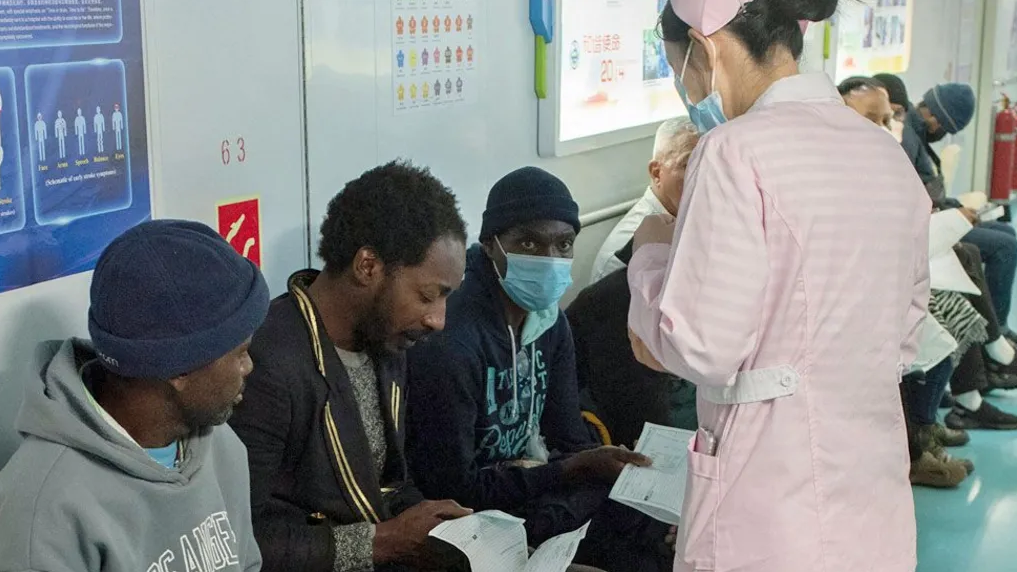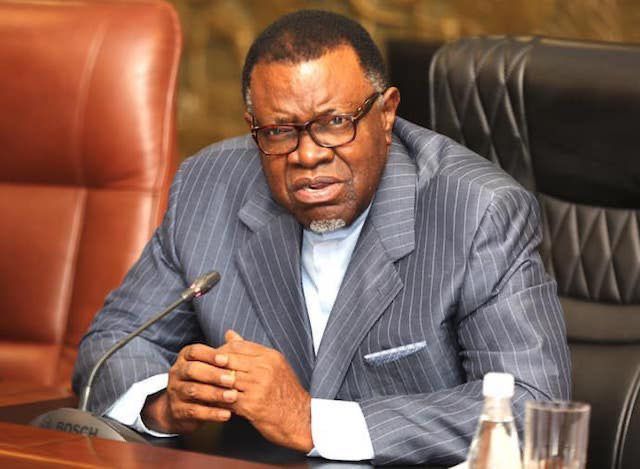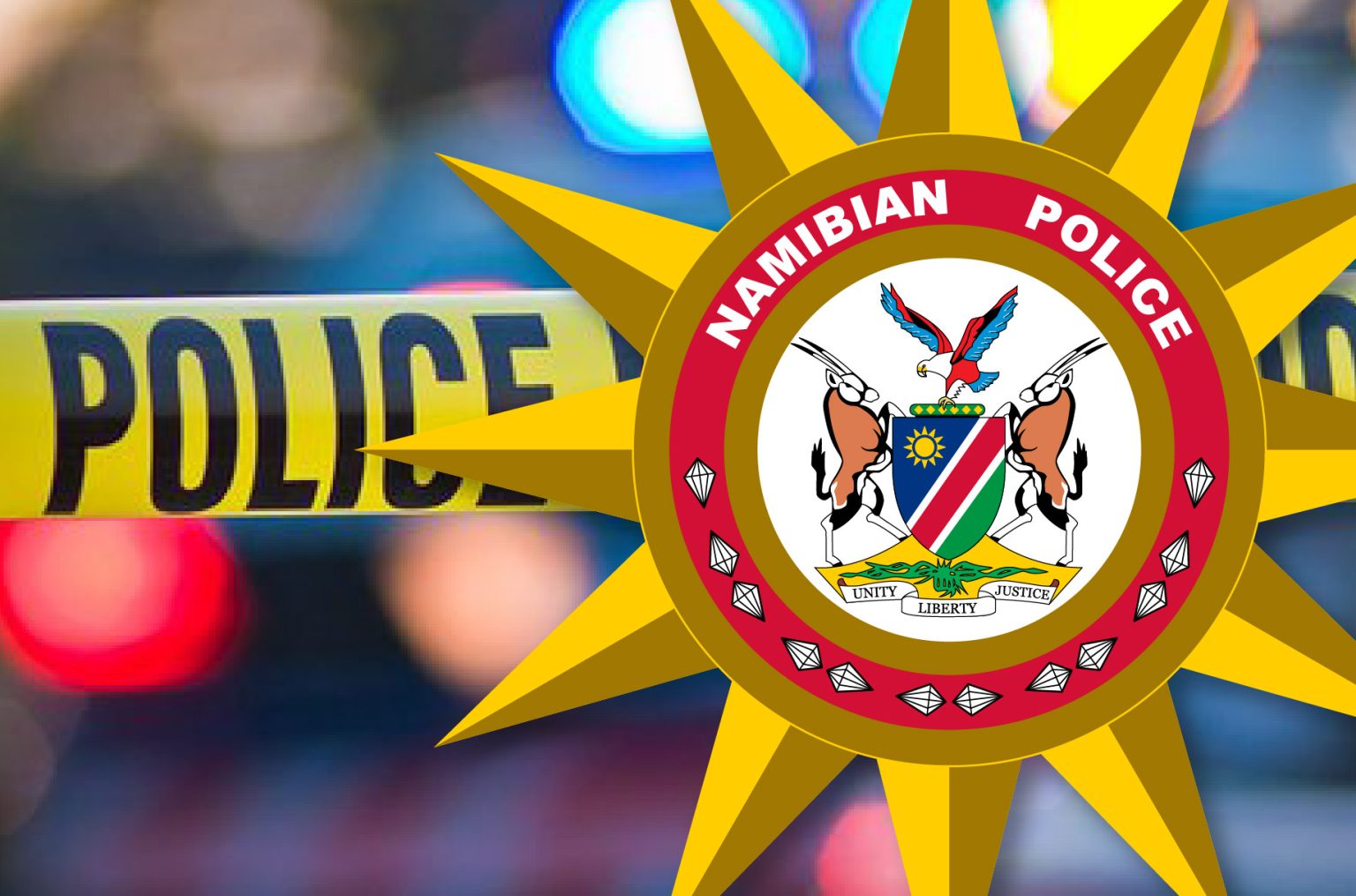Miserable winter weather, snow on Table Mountain and gale force winds have not dampened Cape Town residents’ enthusiasm for free medical care being offered on a Chinese ship, currently docked in the South African city’s harbour.
A financial crisis in one of Africa’s biggest and most developed economies has left public services underfunded, and many people say they cannot afford private healthcare because of soaring prices.
It comes months after the government signed into law a controversial new health scheme, which aims to provide universal healthcare for all, but is facing threats of legal challenges.
Since China’s so-called Peace Ark arrived last week, more than 2,000 South Africans have been treated on board – ranging from maternity check-ups and cataract surgeries to cupping therapy.
China enjoys a strong political partnership with South Africa, and this is Beijing’s latest show of soft power.
Lucy Mnyani told local media she was happy to see images of her unborn child for the first time: “I had been going to the day hospitals in Gugulethu and Langa [townships] and they never sent me for a CT scan.”
Another person who queued up, Joseph Williams, told national broadcaster SABC: “When you go the local clinic you sit for hours and hours before they help you, depending on your condition.
“Here the service was very quick so I’m grateful that I came. I actually got the results for what I came for.”
Officials say the ship has a capacity of 700 patients each day and the service forms part of a joint exercise between the South African and Chinese armies. The ship has 100 people on board with 300 beds, 20 intensive care beds, operating theatres, clinical departments and even a rescue helicopter.
The Peace Ark’s first two days saw pre-selected people being offered treatment before it was extended to the general public on Monday.
“We arranged with the night shelters to provide a service for people who live on the streets of Cape Town because they don’t have access to any healthcare,” Saadiq Kariem, head of Western Cape’s Health Department, told the BBC.
He added that elderly people living in care homes had also been brought in for medical care, and Western Cape health staff were offered wellness visits.
“From registering to completing my care took me an hour,” said Dr Kariem, who himself went for a medical check-up and joined the queue as an ordinary citizen.
“It’s something that would take much longer at our public healthcare facilities because you have many more people requiring services.”
A total of 57 surgeries have been carried out so far, a tiny dent in the province’s waiting list of 80,000 patients.
And this is in Western Cape province, which arguably has one of the best health systems in the country.
“These have been mostly orthopaedic, cataract and a few tubal ligation surgeries for women who no longer wish to fall pregnant,” Dr Kariem said.
The popularity of the Peace Ark is telling, said Dr Shuaib Manjra, chairperson of the Health Justice Initiative: “It shows the public health system in the province and in the country is not serving the people as it should.
“Often you find people spending an entire day at a clinic waiting to be seen. There are major backlogs at hospitals, budgets and posts are being cut, and often this results in people missing out on up to two days of work after waiting to be seen for a simple procedure,” he told the BBC.
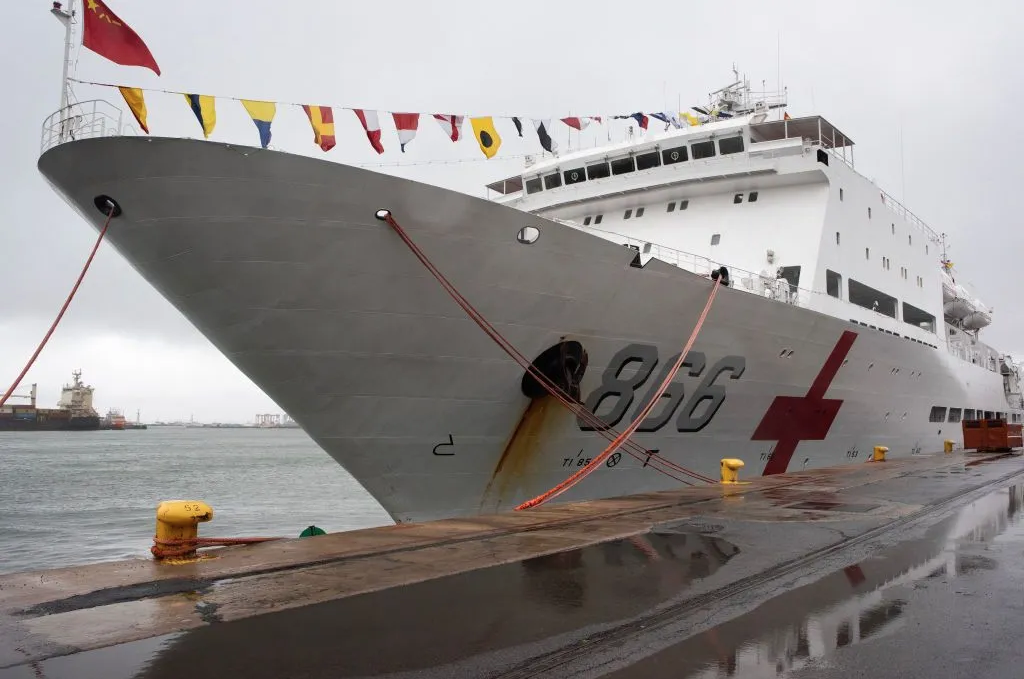
The African National Congress (ANC) says its National Health Insurance (NHI) scheme will be a huge improvement as all services at both public and private facilities will be free at the point of care – paid out of a central fund.
Health Minister Aaron Motsoaledi has insisted it will still be implemented despite the party losing its parliamentary majority in May, and going into coalition with parties like the Democratic Alliance (DA) that oppose some aspects of the scheme.
It will cause a massive shake-up of the health sector, but critics fear it could prompt an exodus of health professionals to find employment abroad.
The scheme is being vociferously opposed by private health companies as it bars people from taking out private health insurance for treatment.
At the moment about 14% of the population have private medical care, with the remaining 86% relying on overburdened state clinics and hospitals.
Last week, Business Unity South Africa and the South African Medical Association refused to sign what is known as the “health compact” – an annual agreement with the president that sets out how various sectors are to address health challenges in the coming year.
The two organisations – which between them represent private businesses and 12,000 doctors – are angry about the NHI in its current form, feeling it has been forced upon them.
Dr Manjra said the NHI was a “noble idea” but he understood the reservations.
“Our history of corruption and incompetence will potentially destroy the entire health sector. There’s an estimate that in some cases up to a third of the health budget is lost through corruption.”
Dealing with these issues within the public health sector should be the priority, he said.
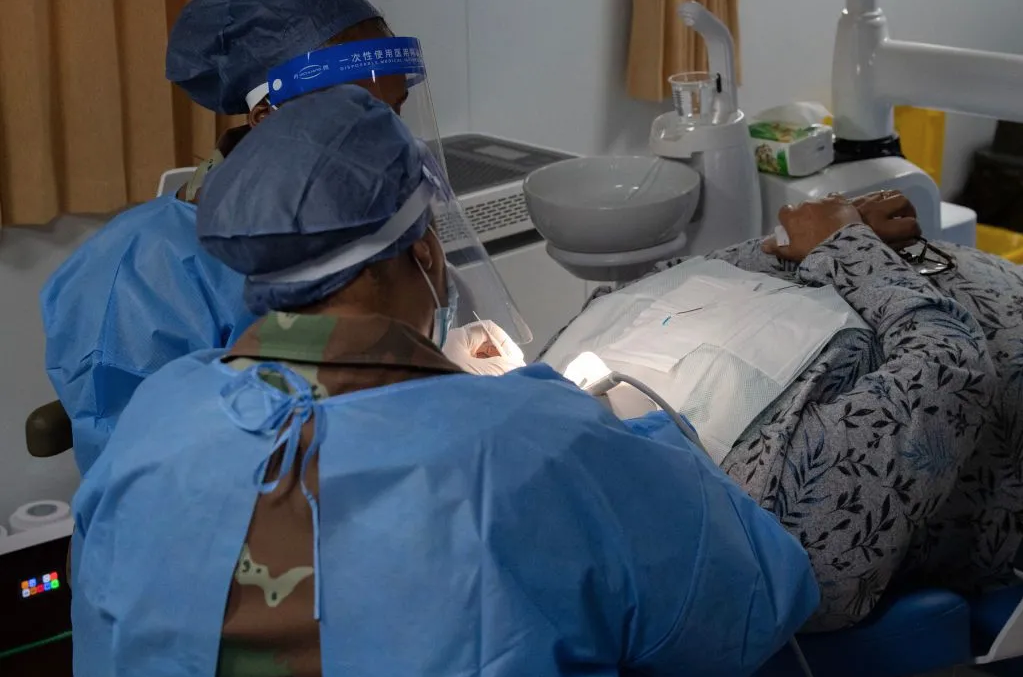
Siphiwe Dlamini, spokesman for the South African army, told the BBC the response to the Peace Ark had been overwhelming with good feedback about “the attention and care received”.
The floating hospital leaves Cape Town on Thursday for Angola before moving on to several other countries. It has already visited the Seychelles, Tanzania, Madagascar and Mozambique – on this its 10th excursion since being commissioned in 2008.
The initiative is seen as a further step in China’s efforts to increase its influence on the African continent.
Over the past two decades its trade with Africa has grown steadily, while Beijing has also been increasingly involved in the construction sector – including building large sports stadiums in several parts of the continent.
Stay informed with The Namibian – your source for credible journalism. Get in-depth reporting and opinions for
only N$85 a month. Invest in journalism, invest in democracy –
Subscribe Now!


